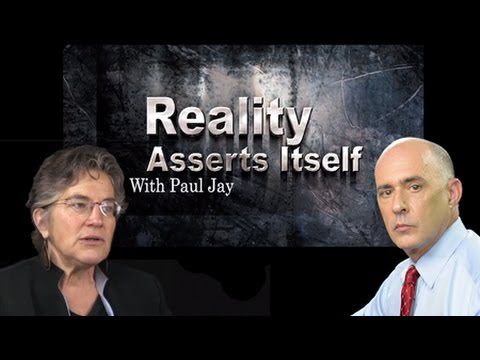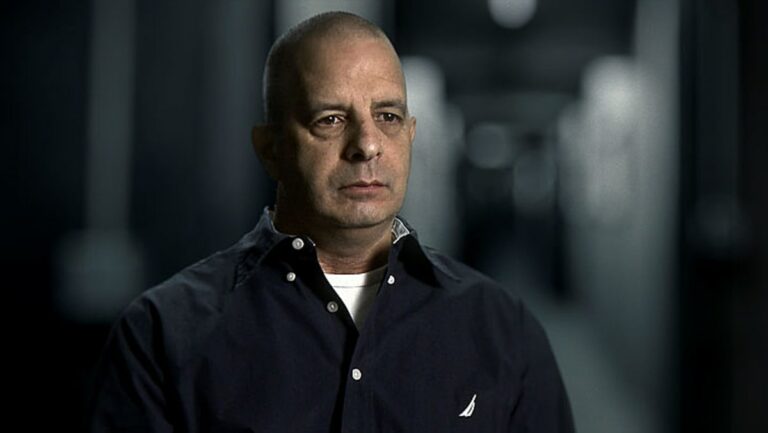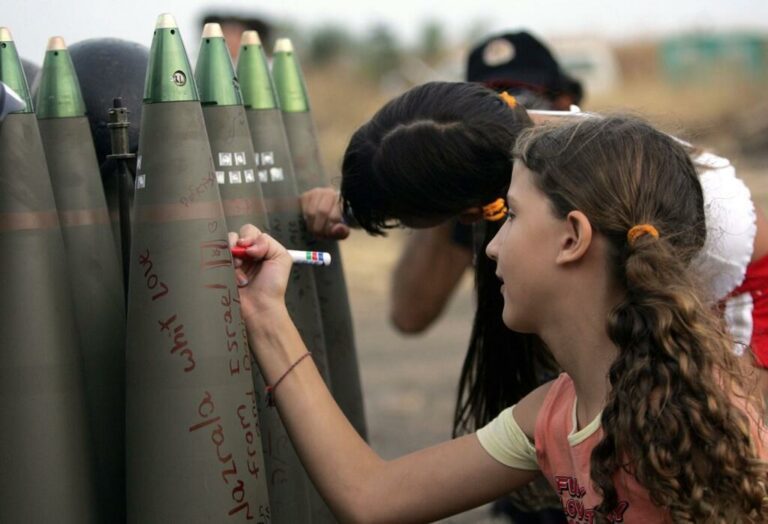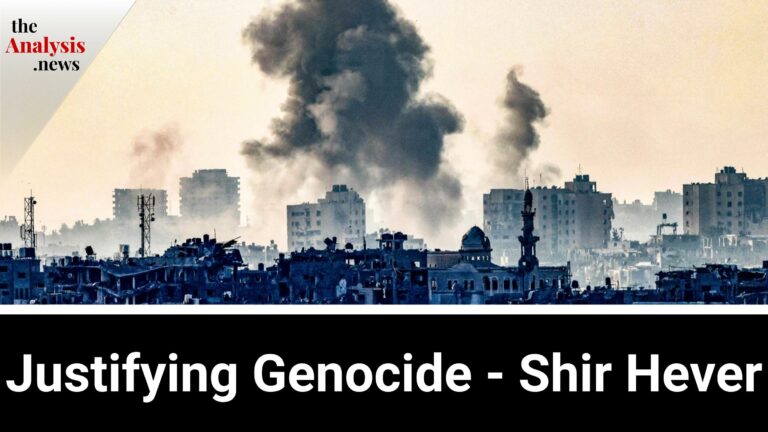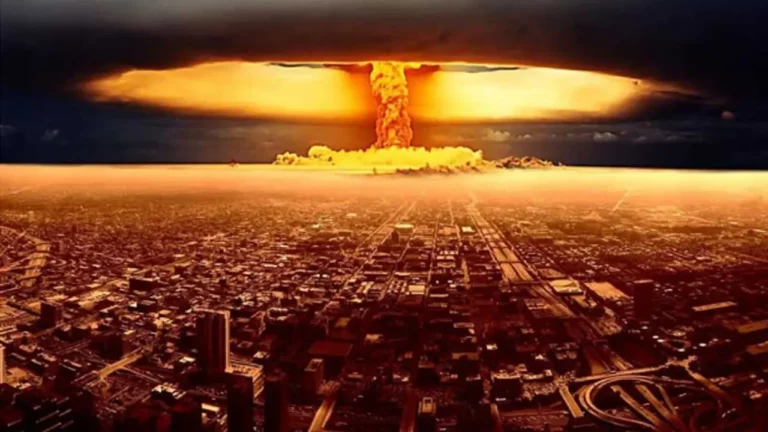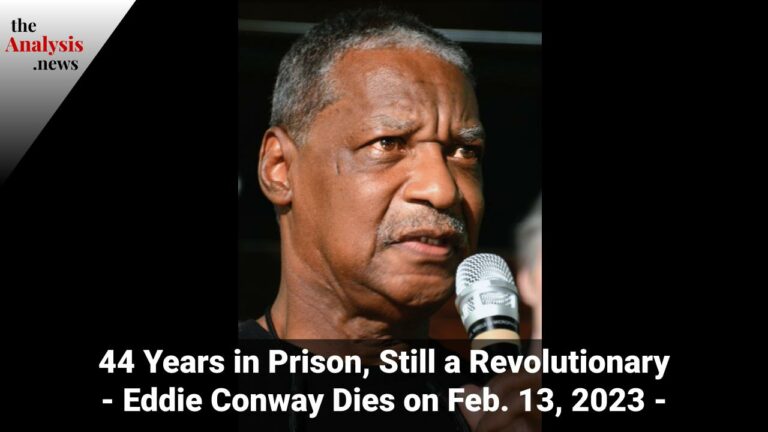Podcast: Play in new window | Download | Embed
Subscribe Apple Podcasts | Spotify | Android | iHeartRadio | Blubrry | Email | TuneIn | Deezer | RSS
On RAI with Paul Jay, Phyllis Bennis examines the coming Geneva conference on Syria and the unwillingness of the West to deal with the humanitarian crisis. This is an episode of Reality Asserts Itself, produced December 10, 2013, with Paul Jay.
TRANSCRIPT
PAUL JAY, SENIOR EDITOR, TRNN: Welcome to The Real News Network. I’m Paul Jay. And welcome to Reality Asserts Itself now with Phyllis Bennis, who now joins us in the studio.
Thanks for joining us again, Phyllis.
PHYLLIS BENNIS, FELLOW, INSTITUTE FOR POLICY STUDIES: Great to be back with you.
JAY: So just quickly, Phyllis is the director of New Internationalism Project at the Institute for Policy Studies, and she’s written all kinds of books. And if you look down below the video player, you’ll see the full biography. And if you watch the earlier segments, I list them all. So let’s just get into it.
Today it’s been reported in the British press that General Idris, who is a former general in the Syrian army and is now the head of the Free Syrian Army, has done a couple of things that seem significant. One, they seem to have dropped their demand that Assad has to step down before they’re going to go to Geneva for some kind of peace negotiations. And two, let me read a quote from the The Independent:
“General Salim Idris, the [now] commander of the Free Syrian Army warned that in particular Isis (Islamic State of Iraq and al-Sham), with thousands of foreign fighters in its ranks, was ‘very dangerous for the future of Syria’ and needs to be confronted before it becomes even more powerful.”
And in the report, Idris actually goes on to say that he’s willing to collaborate with the conventional current Syrian army to fight against these Islamic radicals. There’s some interesting shifts going on here.
BENNIS: There are, and it’s really a reflection of just how escalating this war in Syria is. I mean, there’s now really six separate wars underway in Syria. There is the overall war between a large part of the population and the regime. There’s a regional war for power, largely between Saudi Arabia and Iran. There’s a sectarian war between Sunni and Shia. There’s the war between the U.S. and Israel versus Iran. There’s–you know, all of these wars are being fought inside Syria to the last Syrian. That’s who’s paying the price.
JAY: And it includes–
BENNIS: And now one of them, one of the wars–.
JAY: –Hezbollah and their fight with Israel.
BENNIS: Right.
And one of the wars, of course, is the war that’s emerging within, let’s say, the war within the opposition to the Assad regime, which is the opposition between the FSA, the Free Syrian Army, the secular parts who don’t have as many fighters, as well-armed fighters, as well-trained fighters as the Islamist forces, some of whom are these al-Qaeda types. And that’s a growing, emerging war.
So the situation in Syria is very, very serious and getting worse on a daily basis.
What’s, I think, important to recognize, though, is that the Free Syrian Army, like its civilian counterpart, the national syrian opposition, neither can–no leader can speak on behalf of everybody connected to either the Free Syrian Army or their civilian counterpart.
Idris can say what he believes. This is a shift for him, to say that they would participate in the so-called Geneva II talks, which are supposed to convene sometime early in January, peace talks aimed at hopefully ending this horrific war. But he really–it’s not clear how many people in his forces he can speak for who would agree either with his position about agreeing to participate without a guarantee that Assad would step down or agreeing to go to war against the Islamist forces, the pro-al-Qaeda forces. All of that remains very uncertain. And the same is true on the civilian side.
So it’s very messy. And it means it’s very difficult for the governments that are sponsoring these talks, the U.S. and the Russians at the center, but also Iran, also Turkey, also Jordan, also, crucially, Saudi Arabia, how they interact with the various forces on the ground, because they are hearing different things from different people.
JAY: I’m a little surprised, I think (I shouldn’t be, but I am a little), how little attention’s being paid to what is probably the biggest humanitarian catastrophe on the planet at the moment. The Syrian people are caught between the Syrian government that’s committed untold were crimes against them–and it’s been well documented–and the growing force of the al-Qaeda type forces that seem to be the dominant–have taken over most of the opposition fighting, who themselves have committed untold war crimes against the Syrian people.
BENNIS: Absolutely. Absolutely. There’s been were crimes on all sides.
JAY: Hundreds and hundreds of thousands of refugees, and you cannot pick up a newspaper and find it on the front page anywhere. Like, the odd time, you get a refugee story, and then everyone moves on.
BENNIS: And, of course, it’s going to get worse. There’s now more than 2.1 million Syrian refugees outside the country, of whom half, 50 percent, are children. And the real disaster is coming now in the winter, because people are living in tents, and the winter in Syria, Lebanon, Turkey–that whole area where the refugees are gets very, very cold–heavy snow, lots of rain. These tents are no protection. Children are already undernourished, lacking in medical care. They haven’t been to school. They’re in very bad shape. And when it gets really cold, their immune systems are going to collapse. And we’re going to be seeing massive casualties. And it is a disaster.
The UN has been trying to get more money. Some of the pledged money has not come in. Some of the pledges have not been sufficient. So the whole question of how this is going to be dealt with is on the front agenda only for people who are already involved in the core of humanitarian aid work. As you say, it’s not on the front pages of newspapers.
JAY: And we know, if you look at even statements from Israeli pundits and American right-wing pundits and others, it’s actually almost that is the policy–let Syrians kill each other. And you had people like Daniel Pipes even articulate it. But I’ve seen it in other places, in the Israeli press, you know, make sure you keep a balance of arms, don’t let any side win, just make there’s enough going on that people keep killing.
BENNIS: This is the old model that the U.S. used to some effect in the Iran-Iraq War through the whole decade of the 1980s. You know, this was a situation where you had two countries who were historically the only two countries in the Middle East who could become regional powers, regional hegemons, meaning they had size of land and population, they had wealth from oil, and they had water. Only two countries in the region had all three. That was Iran and Iraq. So they were constantly competing with each other.
When they went to war, the U.S. looked at that and said, wow, this kind of cool. If these guys keep killing each other, they’ll diminish their treasure, they’ll diminish the size of their armies, they’ll be killing their each other, and they won’t bother challenging us. So what do we do to make sure they keep fighting each other? We look at who is the weaker one, which in that case was–Iraq was the weaker party. That’s why the U.S. went to war with on the side of Saddam Hussein, provided arms, provided money–to keep the fighting going.
Now, I don’t think that’s actually the same that we’re seeing in Syria today. I think that once the fighting began, there was a concern–and is a concern in Israel and other countries–that neither side win decisively. But I think it’s a little bit different than wanting to continue, because Israel, among others in the region, knows that the possibilities are huge and are already happening of massive refugee flows, huge medical crises, you know, the fact that the polio epidemic is beginning in Syria. That ignores national borders. That doesn’t pay attention to national borders. That doesn’t mean that Israeli is going to be immune from the polio virus if it gets into the water system, if it gets carried in the region. You know, this becomes very dangerous for Israelis as well.
So I think it’s incredibly shortsighted, those people who would look at it purely as a military issue and say, this is good, people are fighting. People are dying. People are dying of communicable diseases, people are dying from the cold, and people are being killed in wars.
JAY: And if this Geneva conference takes place, is it actually going to matter in the sense–is there anyone going to Geneva that has enough guns on the ground that if they agree to something it actually is meaningful?
BENNIS: I think that right now the Geneva II possibility is all there is. It has to mean something. And the only way it will is if the sponsors of the two sides, meaning the U.S., Turkey, Saudi Arabia, Jordan on one side, and Iran, along with Russia, on the other side, plus Iraq and some of the other countries in the region, agree to stop arming both sides. That’s the only way it’s going to happen.
If there’s not an arms embargo imposed as part of the Geneva II process, then it won’t work. If both sides keep getting all the arms they want, signing an agreement by somebody is not going to be–nobody’s going to abide by it. The only way it’s going to work is if there’s a serious arms embargo. And that means that the most powerful countries–the U.S., Russia, Iran–have to be at the table.
JAY: And the Saudis–
BENNIS: And the Saudis.
JAY: –have to actually agree [crosstalk]
BENNIS: Have to agree to it. And there has to be direct threats. So if the Saudis are not willing to impose an arms embargo, for instance, the U.S. has to be prepared to say, you know what? We’re going to stop selling you our weapons. And they’ve got to get the French to say, and we’re not going to sell you any new ones.
JAY: Well, the odds of the United States saying they’re not going to–there’s a $20 billion naval contract going on. I think it’s in–.
BENNIS: I know. There’s a–it’s a $60 billion–it’s the largest–.
JAY: The United States is not going to stop selling arms to Saudi Arabia.
BENNIS: No. But–it’s not going to stop right away, but there’s got to be some ability to use those arms sales as a lever to force the end of arming all sides in Syria. If we think that we can expect Iran and Russia to stop arming the Syrian regime, the only way that’s going to happen is if we stop arming the other side.
It doesn’t mean that they will then be equal. I mean, you have this–this is the Bosnia problem, this is an age-old problem: when one side starts out much more powerful, they remain more powerful if you just stop with the rearming at a moment. But you’ve got to do that. It’s got to start somewhere, that there has to be an end to the infinite amount of new arms that are flooding the country.
JAY: Now, there’s a body of opinion that is in the Arab world particularly that sees the struggle against Assad as a revolutionary struggle. They see, you know, Assad as not just a war criminal in recent times but has been for a long time. And they say that the al-Qaeda piece of this is being exaggerated, that everyone’s kind of getting on this now because they’ve all decided they just–they’re going to go with the status quo, essentially, Assad regime. So there’s a lot of kind of exaggeration of the role of the al-Qaeda forces. And the kind of more, you know, revolutionary forces that want to overthrow Assad are not getting armed or are getting diminished in all this.
BENNIS: The tragedy is that much of what’s going on right now in Syria has everything to do with how the voices of the original nonviolent democratic opposition movement have been silenced by the violence on all sides. They still exist. There is still a nonviolent political opposition in Syria. And amazingly, despite the fact that some of them have been killed, some have been arrested, some have been driven into exile, some of them survive and some of them have been going out into the streets over and over again with signs, with flags, mobilizing people at the local level to create local ceasefires, among other things, trying to rebuild the idea of a nonviolent political opposition movement.
The people of Syria certainly have the right to choose their own government. And for those who believe that this is a revolutionary process, that it’s part of the process of the Arab Spring, they have every right to do that.
The problem is, when the struggle becomes militarized, the consequences are enormous. And it doesn’t do anybody any good to sit and say, well, they do or they don’t have the right to take up arms. People take up arms. But there are consequences when they do. We saw it in Libya. It’s not about people in Libya didn’t have the right to take up arms against a terribly repressive regime. It was that once they did, there was a known quantity of what the opposition to that was going to look like and what the consequences were going to be. The same thing is true in Syria.
So, you know, I think that there is no question that the Islamist fighters are better armed, better trained, and have more experience. They’re coming in from all over the world, having fought in Iraq, having fought in Afghanistan. They are not coming as, you know, people who used to be college professors and peace activists who take up arms, who of course don’t have the training, of course don’t know how to use heavy weapons even if they could get them.
JAY: I’m a little taken aback about just how little attention is being paid to the role of Saudi Arabia in all of this. The Saudis have clearly been driving all sections and giving money and arms to all sections of the Syrian opposition, but including the al-Qaeda elements. They’re obviously well funded. We know the Saudis have a history of making use of terror networks.
BENNIS: That’s true. But I think we also know that other countries are doing it as well–the U.A.E. Qatar has been playing all sides of the game in Syria, all sides of the opposition. So this is not just–.
JAY: Yeah, this is all Gulf, GCC countries, yes.
BENNIS: Right. This is not just the Saudis. And I think that–.
JAY: But the Saudis and Qatar had a big falling out over Egypt,–
BENNIS: They did.
JAY: –and apparently it’s–
BENNIS: And that’s also true in Syria.
JAY: –expressed itself in Syria. Yeah.
BENNIS: They fund different sources. It’s not true, I don’t think, that–I mean, I’m not on the ground, so I’m not sure, but from what I’m hearing, I don’t think it’s true that the Saudis are funding everyone. They’re funding their people that they see are carrying out–that are willing to take their arms and are carrying out the struggle they see. For Qatar it’s the same thing. They’re funding other political and Islamist forces. Turkey is facilitating a lot of that. Jordan is facilitating it. Jordan is also allowing the CIA to train Free Syrian Army people on Jordanian territory. So everybody in the region is complicit in one way or another. They’re all looking to a postwar Syria and looking to how are we going to have more influence. Nobody’s looking at the Syrian people.
JAY: So what should Americans demand of U.S. foreign policy?
BENNIS: That we should not be arming anyone, that we should go–that the U.S. should continue the momentum towards the Geneva II talks and do so with a willingness and an urgency to impose a complete arms embargo on all sides and demand that from the other side as well. We should up by a huge margin the amount of money we’re paying to the United Nations for humanitarian relief, and we should be pushing governments in the region to take larger number of refugees. And we should be willing to take refugees if there are any who want to come to the United States. That’s a big question. But we should be doing far more on the humanitarian side than we are. And we should demand that we take much more seriously the role that the United States needs to play if these peace talks are going to have any success.
JAY: Okay. In the next segment of our interview, we’re going to imagine what might be a solution to the Israeli-Palestinian conflict. All observers think this is certainly one critical issue at the heart of the tensions and crisis in the Middle East. It’s certainly not all, ’cause, I mean, in my view, even if this thing was solved, it would not eliminate the rivalry between Saudi Arabia and Iran and the fight over oil and all the rest of that, but it’s clearly one of the most important issues. So we’re going to talk about what might a solution look like with Phyllis Bennis on Reality Asserts Itself on The Real News Network.

